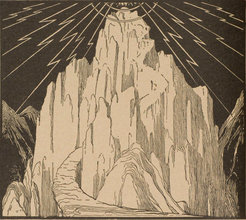German-Jewish legal thought in the understanding of international law during the interwar period
PhD Project

The influence of German-Jewish lawyers in international law has been looked at and addressed several times over the past few decades. Most approaches focus on the peculiarity of the Jewish experience to explain why many Jews chose international law as a discipline and how this experience influenced their work and thought in international law. Focusing on the period during the Second World War and immediately thereafter, these approaches reduce the Jewish experiences to the factors of migration, exile and persecution. However, the Jewish experience in the German-speaking countries, especially during the interwar period, also knew the positive side of a thriving Jewish culture in search of a new Jewish identity. Revolting against the generation of their assimilated parents, young Jews tried to embrace the idiosyncrasies of their Jewish heritage and create a new modern Jewish identity that was neither assimilated nor strictly orthodox. One trajectory of this outlook was the attempt to argue the necessity of Jewish idiosyncrasy for the well-being of European society by pointing out the contributions Judaism and Jewish philosophy made to European society as well as their potential to meet the challenges of the time. One of these challenges concerned the conceptualisation of international law and the aim to ensure world peace. Authors like Isaak Heinemann, Botho Laserstein, Eduard Bernstein and Isaak Breuer reconceptualised international law and a League of Nations based on categories and terms derived from Jewish law and philosophy. The project traces the impact of these works on young Jewish lawyers and their legal scholarship between 1914 and 1933. By taking a sample from all the PhD projects on international law pursued in German-speaking countries, this research project also asks whose thought was relatable enough to be successful in the field of international law both on an academic and practical level. The ones who failed on a national academic level yet succeeded on an international level also bear witness to the conservatism in the thought of the German legal sciences. By looking at both forgotten and successful legal scholars, this research examines the process of innovation and evolution in the German legal sciences.
